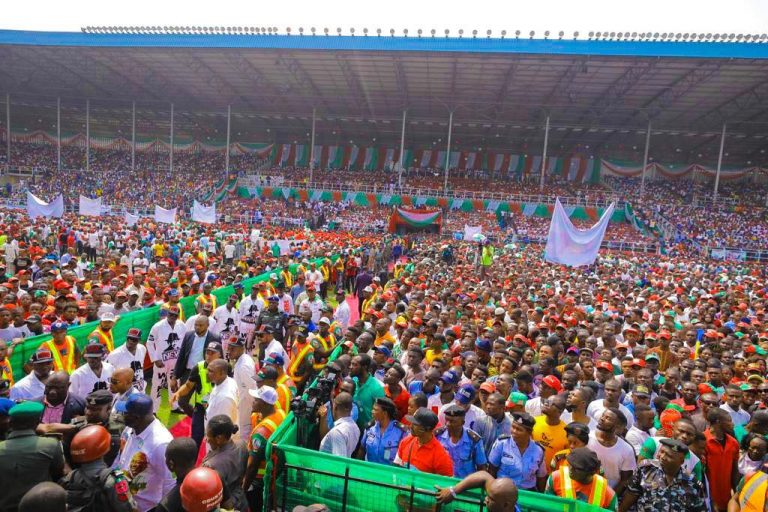
Last time I checked, it was the chapter three of the Ecclesiastes’s book in the Holy Bible that said “There’s time for everything under the Sun.”
It’s needless to reiterate that whatever one intends to do or embark on here on earth, he or she must acknowledge there is a specific time such intended action is meant to be taken.
The above assertion implies that every activity, either proposed or ongoing, is highly and strictly dependent on time. In other words, every thought, action or inaction abides by the supremacy of time.
Register for Tekedia Mini-MBA edition 19 (Feb 9 – May 2, 2026): big discounts for early bird.
Tekedia AI in Business Masterclass opens registrations.
Join Tekedia Capital Syndicate and co-invest in great global startups.
Register for Tekedia AI Lab: From Technical Design to Deployment (next edition begins Jan 24 2026).
Just as there’s an apt time for cultivation, propagation as well as harvest of a crop, so do we have time for birth, growth and death of a human being or any creator.
I have come to realize that the reason we often fail in so many projects we embark on is simply because we usually do the right thing at the wrong time; and that is the basis or rudiments of this piece.
Unequivocally, we invariably tend to fail in our various endeavours owing to the fact that we take the aforementioned biblical or divine assertion for granted.
It’s not anymore news that in several facets across the Nigerian federation, various politicians have already commenced politicking against the next interregnum in the country come 2023, thereby making the entire polity seem nauseous and unreasonable when it is meant to be loveable. How do you reconcile this?
Frankly, it’s really pathetic that most Nigerian politicians are still yet to contrast between politics and governance. It’s more baffling when realized that even those who are currently occupying various political positions are part and parcel of the said politicking.
In various states across Nigeria, in several quarters, people including government functionaries have started debating or agitating for who would emerge as the next governor.
It’s even more pitiable to observe that the electorate who are expected to be the main solicitors of governance happen to be the major actors in the said ongoing melodrama.
To say the least, we seriously need to reexamine ourselves, both mentally and otherwise. Undoubtedly, there’s an urgent need for proper diagnosis toward ascertaining our actual plight.
We need to ascertain what prompted the proclivity for such lifestyle; we need to find out if it is an inborn anomaly or self-indulgence, because we can’t continue like this. Honestly, failure to diagnose this lingering societal endemic might cause us as a people monumental self-inflicted injury.
Right now, rather than constituting uncalled political agitations, what’s required in every quarter, be it a state or national issue, is a viable and proactive opposition.
A viable opposition would strongly help to ensure that the ruling party maintains a participatory democracy in all ramifications irrespective of the circumstance. It’s only a participatory democratic setting that can yield a wholesome administration.
On the contrary, instead of working assiduously towards forming a formidable opposition, the politicians are only concerned with how and when to defect to the ruling party with a view to ensuring that the ‘national cake’ does not pass them by.
On a daily basis, what we hear among the political class remains nothing but outright defection. It’s no doubt an ignominy that an average Nigerian politician invariably wants to be a member of the ruling party.
A certain political party cannot rule at all times or forever; leadership is about ‘soldier go, soldier come’. Besides, if everyone rules, who would serve or stand in as the opposition?
We really need to note that without a sound and firm opposition trailing a certain leadership, the administration of the leaders in question would definitely be porous. There are no two ways about it. Indeed, we seriously need to learn more about leadership prospects, challenges and crises.
It’s the opposition and other concerned bodies that are meant to motivate the followers toward ushering in the desired change. Suffice it to say that good governance is a product of adequate cum reliable opposition and genuine followership.
The followers will continue to be docile or marred by apathy unless they are thoroughly informed, educated as well as duly activated; and such role is the function of the opposition, analysts, civil society, religious groups and what have you.
Due to lack of active participation by the citizenry, presently you would notice that implementation of good governance is usually a mirage. The citizens need to fully comprehend that the leaders are answerable to them; they must note that leadership and followership are inevitably interwoven.
We can’t sit on the fence and expect miracles or wonders to take place. The leaders are human, so there’s need for reminder, criticism, and so on, when necessary. Thus, we must be ready and willing to call them to order whenever they err or go astray.
The church or mosque, or as the case may be, isn’t supposed to participate in politics, but governance. It’s obvious that the former begets the latter; but we need to comprehend that both factors, which are conspicuously two needed societal recipes, are just like two parallel lines that have no meeting point.
Politics ends at the polls, whilst governance begins at the polls; hence, where politics ends, governance takes over. But it’s apparent that in contemporary Nigerian society, we tend to mix both tools, thus not unlike an aberration.
Nigerians must, therefore, understand that this is still time for governance, and not politics as it’s being observed in most quarters. Thus, everyone ought to live up to the expectations.



